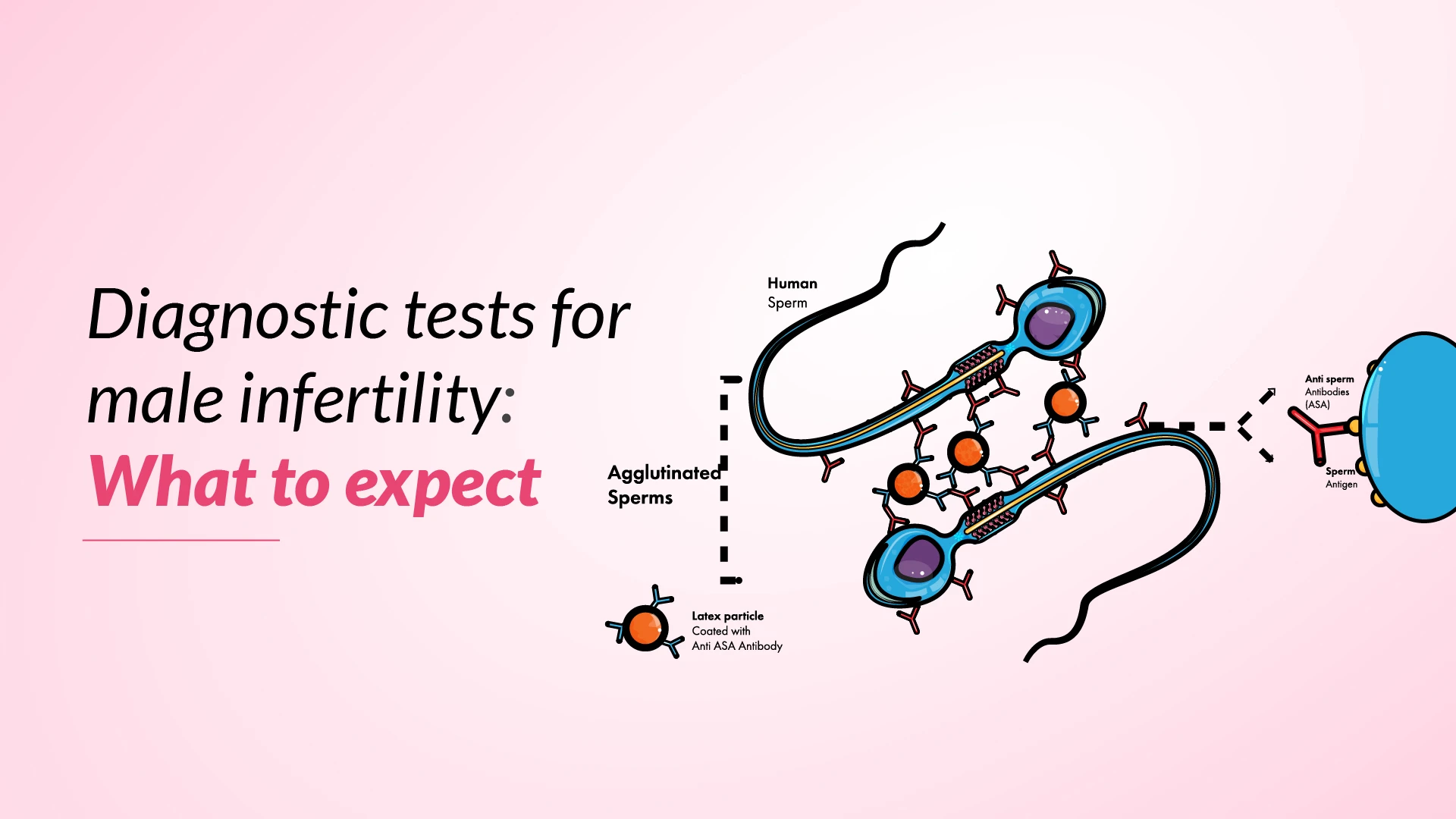Infertility can be an emotional as well as challenging journey for couples trying to conceive. While the focus is often on female fertility, male infertility is equally common and can contribute significantly to a couple’s inability to conceive. Diagnostic tests for male infertility play a crucial role in identifying the underlying reasons and determining the appropriate treatment modalities.
When it comes to male infertility, numerous factors can contribute to the problem, including hormonal imbalances, genetic disorders, structural abnormalities, and lifestyle choices. Identifying the root cause is vital for developing an effective treatment plan.
Causes for Male Infertility
Male infertility can arise from a myriad of factors, including:
- Hormonal Fluctuations: Abnormal levels of hormones, such as testosterone, follicle-stimulating hormone (FSH), and luteinising hormone (LH), can impact sperm production and quality.
- Genetic Disorders: Certain genetic conditions, like Klinefelter syndrome or Y chromosome microdeletions, can affect male fertility.
- Structural Abnormalities: Issues with the male reproductive system, like varicoceles (enlarged veins in the scrotum), obstructions in the vas deferens, or congenital defects, can impair sperm production or transport.
- Environmental and Lifestyle Factors: Exposure to toxins, radiation, excessive heat, smoking, alcohol consumption, and certain medications can negatively impact sperm count and quality.
- Ejaculatory Disorders: Problems with ejaculation, such as retrograde ejaculation or premature ejaculation, can hinder fertilisation.
- Immunological Factors: In some cases, the body’s immune system may produce antibodies that attack and immobilise sperm, making it difficult for them to fertilise an egg.
Suggested Read: Boosting Naturally Male fertility with Diet, Lifestyle Changes
Diagnose Infertility in Male
Fertility Check for Men
The initial step in diagnosing male infertility includes a thorough medical history and physical examination. Your doctor will ask various questions about your sexual history, any previous fertility issues, and any medical conditions and medical or surgical treatments that may impact fertility. They will also carry out physical tests to evaluate the reproductive organs, including the testicles, scrotum, and penis.
Semen Analysis
One of the most common and essential tests for evaluating male fertility is a semen analysis. This test includes collecting a semen sample, typically through masturbation, and analysing various factors, including:
- Sperm count
- The ability of the sperm to move effectively (Sperm motility)
- The shape and structure of the sperm (Sperm morphology)
- Semen volume and consistency
Abnormalities in any of these factors can indicate potential fertility issues and may require further testing.
Different Types of Male Fertility Tests
While a semen analysis is a crucial component of the diagnostic process, several other tests may be recommended depending on the individual’s medical history and initial findings.
Hormone Testing
Hormonal imbalances can significantly impact male fertility. Your doctor may advise blood tests to measure the levels of hormones like testosterone, follicle-stimulating hormone (FSH), and luteinising hormone (LH). These hormones play crucial roles in sperm production and maturation.
Suggested Read:
Impact of Prolactin Hormone on Fertility
Genetic Testing
In some instances, doctors may recommend genetic testing to rule out potential genetic disorders that could be contributing to infertility. It may include tests for Klinefelter syndrome, Y chromosome microdeletions, or other genetic abnormalities that can affect male fertility.
Imaging Tests
Imaging tests, like ultrasounds or MRIs, may be used to assess the structure and function of the male reproductive organs. These investigations can help identify any abnormalities or obstructions that could be impacting fertility.
Testicular Biopsy
Sometimes, a testicular biopsy may be recommended to assess sperm production and quality directly. During this procedure, a small sample of testicular tissue is retrieved and examined under a microscope.
Specialised Sperm Function Tests
In addition to standard semen analysis, your doctor may order specialised tests to evaluate sperm function and fertilisation potential. These tests can include:
- Sperm Penetration Assay: This test evaluates the ability of sperm to penetrate an egg or a substitute material.
- Acrosome Reaction Assay: This test assesses the ability of sperm to undergo the acrosome reaction, which is necessary for fertilisation.
- Sperm-Egg Binding Assay: This test evaluates the ability of sperm to bind to the egg’s outer layer.
Post-ejaculation Urinalysis
In some cases, a post-ejaculation urinalysis may be recommended to check for the presence of sperm in the urine. This can help diagnose retrograde ejaculation. It is a medical condition where semen flows back into the bladder instead of being moved out during ejaculation.
Preparing for the Fertility Tests
Before undergoing any fertility check for men, following your doctor’s instructions carefully is crucial. This may include:
- Do not have sexual activity for a specific period (usually 2-5 days) before providing a semen sample.
- Avoid certain medicines or supplements that could affect test results.
- Providing accurate information about your medical history and any previous fertility issues.
- Communicating concerns or questions with your doctor ensures a smooth and comfortable testing process.
What to Expect from Your Doctor
Your doctor will explain the complete process of diagnosing male infertility. They will explain the purpose of each test, what to expect during the procedures, and how to interpret the results. Having an open conversation with your doctor is essential, as they can provide valuable insights and support throughout the process.
Additionally, the doctors may suggest lifestyle changes or refer you to a fertility specialist if necessary. Seeking support from a counsellor or support group can also be beneficial during this challenging time.
Suggested Read: Male Infertility Testing: Understanding the Process and Results
Conclusion
To detect male infertility, the doctor may prescribe a series of investigations and evaluations to identify the underlying reason for male infertility. From semen analysis to hormone testing, genetic screening, and specialised sperm function tests, these diagnostic procedures provide valuable markers about the factors contributing to infertility.
It’s essential to approach the diagnostic process patiently, as pinpointing the root cause may take time. However, with the correct information and support from doctors, couples can make informed decisions about their fertility journey and explore appropriate treatment options.
Remember, infertility is a common issue, and seeking medical advice is an essential step towards understanding and addressing any potential fertility challenges.




























